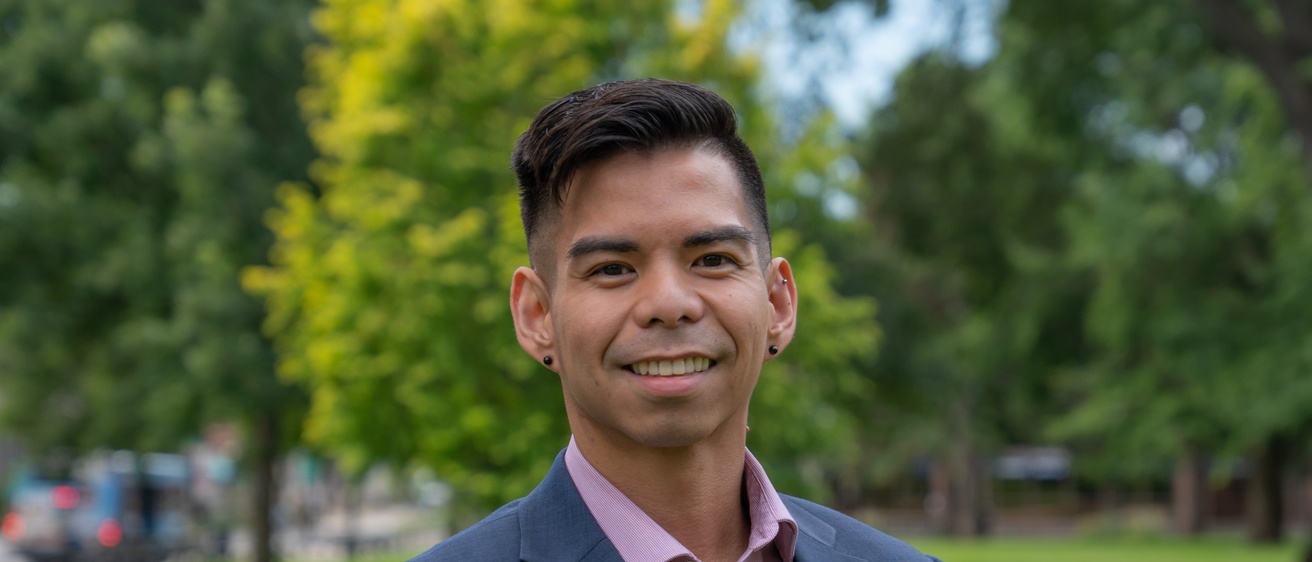Written by: Claire Quigle
Richard Velasco, a new Clinical Assistant Professor in Mathematics Education and Science Education in the Department of Teaching and Learning, wants current and future STEM teachers to learn more about policy so they become more involved in getting their voices heard and advocate for STEM for their students.
Before coming to the University of Iowa College of Education, Velasco received a master's in curriculum and instruction from the University of Saint Mary in Leavenworth, KS in 2010. He then went on to earn a Ph.D. in curriculum and instruction with a specialization in STEM education from Texas Tech University in Lubbock, Texas in 2020.
Velasco was born and raised in the Pacific Island of Guam and worked as a secondary math teacher and a college freshman level math adjunct instructor at the University of Guam.
Velasco received multiple awards throughout his career, including the Presidential Award of Excellence in Mathematics and Science Teaching (PAEMST) and was named Guam's Middle School Teacher of the Year in 2015.
Velasco attributes much of his research interests to his experiences in Guam. His love for STEM education began after receiving the Middle School Teacher of the Year award.
“I was interested in collaborating with other STEM teachers in developing a STEM curriculum that fosters critical thinking, collaboration, and hands-on experiences for K-12 students,” Velasco said.
After working to train teachers in STEM pedagogical practices in other schools, Velasco was inspired to pursue his doctoral studies where he was able to study the way STEM teachers advocated for STEM education and how they contribute to STEM education policy.
Velasco became interested in the advocacy of STEM after working as a STEM teacher ambassador for the National Science Teaching Association (NSTA) and the National Council of Teachers of Mathematics (NCTM). In 2018, he was a part of a 10-member cohort of previous PAEMST awardees for a grant funded by the National Science Foundation. Through the STEM Teacher Ambassador program, he was trained in Washington D.C. on how to advocate for STEM and learned more about STEM education policy.
“I learned so much from this experience, especially the behind-the-scenes work in education policy-making, and how problematic it is that voices of teachers are not included in the policy-making process,” Velasco said.
Velasco is currently interested in the research of STEM teacher development, STEM teacher advocacy, and informal STEM learning spaces, which is what drew him to the university.
“I was very much aware of the University of Iowa's reputation as one of the top research institutions in the country. I also know they have excellent, nationally-ranked programs in the College of Education,” Velasco said. “So, naturally, I was very excited at the prospect of working in an academic setting that fosters robust research, teaching, and service to the local and national community at large.”
In addition to the university’s reputation, experiencing the collegiality and support from the faculty and staff also drew him to Iowa.
“I already feel so welcomed and supported in my transition to not only the university system but Iowa in general,” Velasco said. “As I begin my new position, I look forward to learning from and with my colleagues in the STEM program at the Department of Teaching and Learning as we navigate through both successes and challenges we are bound to encounter.”
